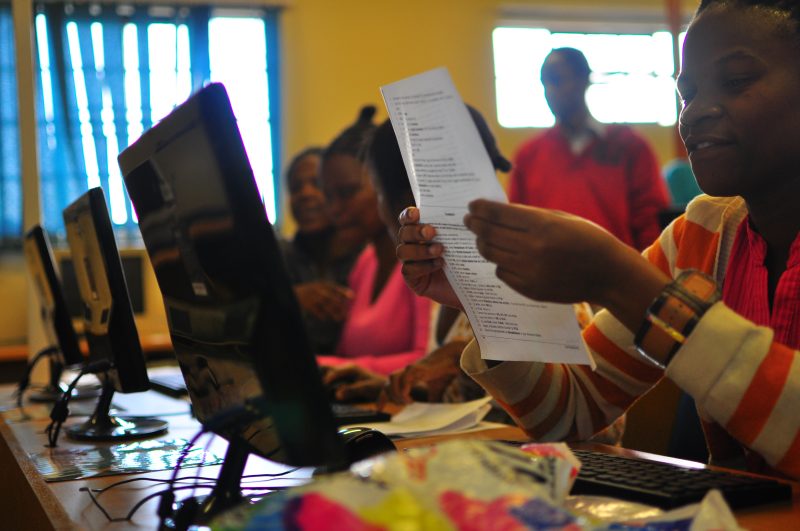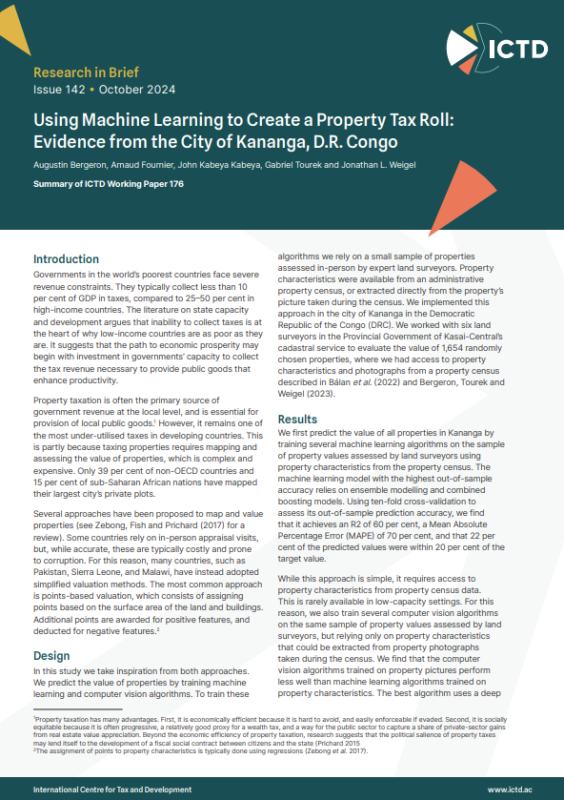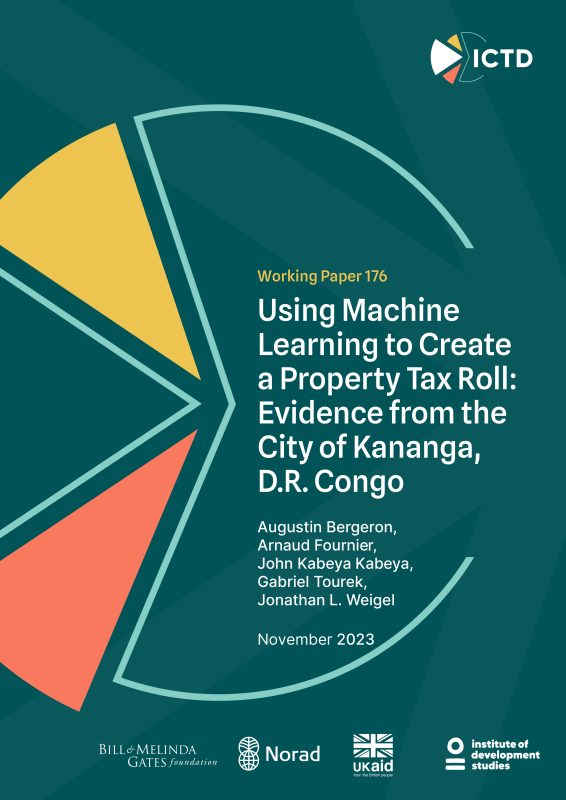Thematic Areas
In the Democratic Republic of Congo (DRC), since the 2006 Constitution, property taxes have been a local tax administered and collected by provincial governments. The General Tax Code (Code Générale des Impôts, CGI) dictates that property tax is an annual flat rate tax on developed and undeveloped properties, with the tax amount varying based on the property’s characteristics and the locality’s ranking through an area zoning system. Property owners are required to declare occupancy or modifications of their buildings to their provincial tax authority, accompanied by the building plans.
Each province in the DRC has a General Directorate of Revenue (Direction Générale des Recettes, DGR) responsible for property tax administration. For example, in the province of Central Kasai, the Direction Générale des Recettes du Kasaï-Central (DGRKAC) works with the Ministry of Finance but has autonomy to make policy decisions with the provincial government, as long as they comply with the CGI. The DGRKAC, like other DGRs, is responsible for property identification, issuing tax notices, and tax collection. Collected revenues are deposited into the DGR’s bank account. Provincial governments, each with its own parliament and governor, oversee these directorates, reflecting the country’s decentralized governance structure.
Although DRC struggles to reach its property tax potential, on a national and provincial scale, governments have identified property taxation as a major source of revenue. Reform efforts at the provincial level show signs of promise. In Kananga specifically, the DGRKAC is working to digitalise property tax administration to improve fairness and equity. This initiative involves the DGRKAC partnering with the Organization of Economic Studies in Kasai (ODEKA) and LoGRI, focusing on the digital identification, mapping, and valuation of properties across the city.
Learn more:
- Nzewanga and Franzsen (2017) : “Chapter 9 : Democratic Republic of Congo” in Property Tax in Africa
https://www.lincolninst.edu/publications/books/property-tax-in-africa - Bergeron et. al (2023) : Using Machine Learning to Create a Property Tax Roll : Evidence from the City of Kananga, D.R Congo https://opendocs.ids.ac.uk/opendocs/bitstream/handle/20.500.12413/18184/ICTD_WP176.pdf?sequence=1&isAllowed=y
- Weigel (2018): Building State and Citizen: How Tax Collection in Congo Engenders Engagement with the State https://www.aeaweb.org/conference/2019/preliminary/paper/nNhtRQ4B
Featured Projects

Status: Completed
IT and Property Tax Reform in the Province of Kasaï Central, DRC
Upcoming Publications
Research & Publications


Related Media
Photo credit to Fabian Plock


